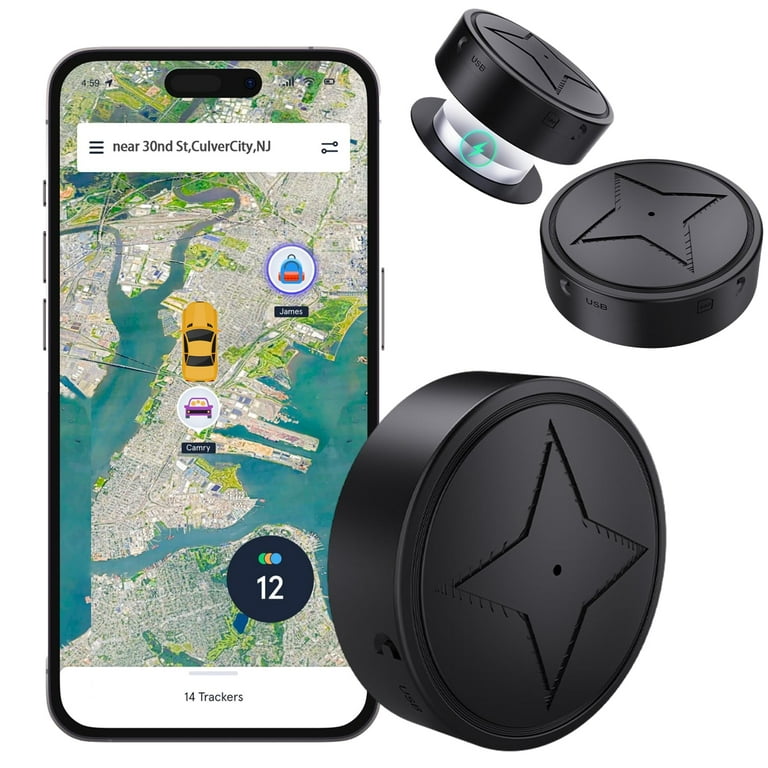Navigating the Future of GPS Tracking: Innovations, Difficulties, and Opportunities Ahead
As we stand at the crossroads of technical innovations and societal implications, the landscape of GPS tracking is positioned for a transformative journey in advance. The advancement of GPS modern technology has been quick, introducing a new period of real-time tracking abilities that guarantee extraordinary levels of accuracy and performance. With great advancement comes terrific duty, as data personal privacy issues loom big and security difficulties in GPS tracking raise essential questions about securing delicate information. Amidst these difficulties lie covert opportunities waiting to be discovered, supplying a peek into the untapped capacity of a market at the edge of change.
Evolution of GPS Modern Technology
Created for military functions, General practitioner technology has evolved to come to be an ubiquitous tool in numerous industries, consisting of transportation, logistics, farming, and personal navigation. Early General practitioner systems were defined by limited insurance coverage, reduced precision, and bulkier equipment demands.
One trick landmark in the development of GPS technology was the growth of Selective Schedule (SA) in the 1990s, which deliberately deteriorated the precision of private GPS signals. As GPS modern technology continues to evolve, we can expect additional improvements in efficiency, precision, and coverage, opening up new possibilities for development and applications across different industries.
Real-Time Monitoring Developments
Structure on the developments in GPS modern technology that have actually changed accuracy and coverage, real-time monitoring has become a pivotal area of advancement with profound effects throughout numerous industries. Real-time tracking developments allow companies and companies to keep an eye on cars, personnel, and possessions instantaneously, offering beneficial insights for decision-making procedures - gps tracking. By leveraging real-time data, business can enhance operational effectiveness, enhance customer care, and ensure the safety and security and safety of their properties
Among the key innovations in real-time tracking is the combination of man-made intelligence and maker knowing algorithms, which enable anticipating analytics and anomaly discovery. These abilities permit for positive maintenance scheduling, course optimization, and risk reduction strategies. The advancement of real-time tracking systems has led to the advancement of personalized dashboards and mobile applications, empowering individuals to access essential details anytime, anywhere.
Data Privacy Worries

Data personal privacy issues encompass various facets, including the storage space, sharing, and retention of area data. Companies need to carry out robust safety and security actions to safeguard general practitioner monitoring information from cyber threats and data violations. Clear policies concerning data collection practices and the objective of monitoring are important to build trust with customers and ensure compliance with information defense laws.

Safety And Security Difficulties in GPS Monitoring
Resolving information privacy worries in GPS tracking is intricately linked to reducing the protection challenges that arise from prospective vulnerabilities in the innovation. One of the main protection challenges in GPS monitoring is the threat of unauthorized access to delicate location information - gps tracking. Cyberpunks might obstruct GPS signals, manipulate location details, or perhaps track people without their permission. This not just attacks individual privacy yet additionally postures serious safety risks.
One more safety and security difficulty is the potential for spoofing or jamming general practitioner signals. By interfering or transmitting incorrect signals with legit ones, destructive stars can deceive GPS receivers and control location data. This positions dangers not just for individual customers however likewise for governmental and military applications that rely on specific placing info. Executing durable file encryption, verification measures, and signal confirmation protocols are essential action in dealing with these safety obstacles in GPS tracking.
Emerging Opportunities in the Market
The blossoming field of general practitioner tracking modern technology presents a myriad of encouraging possibilities for sector development and innovation. One crucial chance exists in the development of GPS tracking applications past conventional markets. Industries such as logistics, transportation, and fleet administration have been early adopters of general practitioner technology. Nevertheless, arising possibilities see are currently emerging in locations like medical care, agriculture, and environmental surveillance. For circumstances, GPS tracking can change client treatment by making it possible for remote monitoring of essential indicators and making certain prompt medical support. In agriculture, general practitioner modern technology can maximize plant monitoring methods and boost general yield. Furthermore, environmental monitoring can gain from GPS tracking by enabling real-time information collection for climate research study and conservation initiatives.
Furthermore, the increasing demand for linked devices and IoT solutions provides a ripe chance for General practitioner monitoring business to broaden their offerings and create cutting-edge solutions that cater to a much more linked world. By capitalizing on these arising possibilities, General practitioner monitoring companies can position themselves for continual growth and success in the dynamic landscape of the sector.
Final Thought
Finally, the future of general practitioner monitoring is noted by constant development and innovation in innovation. Real-time monitoring innovations and arising chances existing encouraging leads for the industry. Nonetheless, data privacy issues and safety obstacles stay considerable difficulties that require to be resolved. As the sector progresses, navigating these obstacles will certainly look these up be essential to ensure the ongoing development and success of general practitioner monitoring innovation.
With great technology comes great responsibility, as information privacy worries loom large and protection challenges in GPS monitoring raise significant concerns concerning securing delicate information.With the rapid proliferation of General practitioner monitoring technology in numerous markets, dealing with information personal privacy problems has ended up being an essential important for both customers and services alike. The collection of area information with General practitioner monitoring increases considerable privacy issues, as it allows the monitoring of individuals' actions and motions. Services making use of GPS monitoring have to prioritize securing this information to stop unapproved accessibility or abuse that might jeopardize individuals' privacy legal rights.
Companies have to implement durable safety and security procedures to protect General practitioner monitoring information from cyber risks and information breaches.